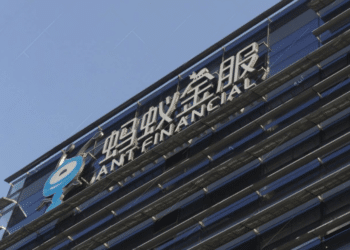In the rapidly evolving landscape of decentralized services, establishing trust and confidence among users is of paramount importance. As users entrust their data, assets, and transactions to decentralized systems, they seek assurance in the reliability and security of these services. One groundbreaking protocol that has been at the forefront of fostering confidence in decentralized services is the DSLA Protocol. In this article, we delve into the innovative approach of the DSLA Protocol and explore its impact on enhancing trust and reliability in the decentralized realm. If you are starting to invest in crypto, you may consider investing in a reputable trading platform like Qumas AI.
Understanding Decentralized Services
Before we delve into the groundbreaking approach of the DSLA Protocol, let’s first understand the concept of decentralized services. In a decentralized system, decision-making authority and control are distributed across multiple nodes, eliminating the need for a central authority. This distributed nature brings several advantages, including enhanced security, resilience against single points of failure, and increased transparency. Decentralized services span a wide range of applications, including blockchain networks, decentralized finance (DeFi) platforms, peer-to-peer marketplaces, and more. While the decentralized model offers numerous benefits, challenges related to trust and reliability have emerged due to the absence of a central governing entity. This is where the DSLA Protocol comes into play.

DSLA Protocol: Empowering Confidence
The DSLA Protocol, which stands for Decentralized Service Level Agreements, introduces an innovative framework that addresses the challenges of trust and reliability in decentralized services. By leveraging blockchain technology, smart contracts, and crowd wisdom, the DSLA Protocol empowers users to assess and manage service level agreements (SLAs) within decentralized ecosystems.
Smart Service Level Agreements
At the core of the DSLA Protocol are smart service level agreements. These agreements define the expected level of service quality and establish mechanisms to incentivize or penalize service providers based on their performance. By utilizing smart contracts, DSLA enables automatic enforcement of SLAs, ensuring accountability and transparency.
Decentralized Oracle Marketplace
To evaluate the quality of services, the DSLA Protocol incorporates a decentralized Oracle marketplace. Oracles act as trusted sources of off-chain data, providing information about the performance and reliability of decentralized services. By aggregating data from multiple oracles, DSLA enhances accuracy and mitigates the risk of relying on a single data source.
Crowd Wisdom and Staking
One of the most intriguing aspects of the DSLA Protocol is its utilization of crowd wisdom and staking mechanisms. Users are encouraged to become “validators” by staking DSLA tokens, allowing them to participate in the assessment of service providers. Validators are rewarded for their contributions and have the power to influence the outcome of SLA agreements based on their stake and reputation within the network.
Advantages of the DSLA Protocol
The DSLA Protocol brings forth a multitude of advantages that foster confidence in decentralized services. Let’s explore some of the key benefits:
Improved Reliability
By enforcing smart service level agreements, the DSLA Protocol incentivizes service providers to deliver reliable and high-quality services. This assurance of service quality enhances trust among users, mitigates risks, and reduces the likelihood of service disruptions or malicious activities.
Enhanced Transparency
With the DSLA Protocol’s decentralized Oracle marketplace, users gain access to transparent and verifiable data regarding service providers’ performance. This transparency fosters a culture of accountability, allowing users to make informed decisions based on reliable information.
Community Governance
The DSLA Protocol embraces community governance, empowering users to actively participate in the decision-making process. Validators play a crucial role in assessing service providers and ensuring adherence to SLAs. This democratic approach strengthens the overall resilience and reliability of the decentralized ecosystem.
Incentivization Mechanisms
Through the staking and reward mechanisms, the DSLA Protocol incentivizes active participation and contribution from the community. This fosters a vibrant ecosystem of validators and encourages continuous improvement of service quality.
Conclusion
The DSLA Protocol has emerged as a groundbreaking approach to foster confidence in decentralized services. By incorporating smart service level agreements, a decentralized oracle marketplace, and crowd wisdom, the protocol addresses the challenges of trust and reliability in the decentralized realm. With improved reliability, enhanced transparency, community governance, and incentivization mechanisms the DSLA Protocol paves the way for a future where decentralized services, such as the Bitcoin Era which is an online trading platform, can be trusted and relied upon with utmost confidence.















